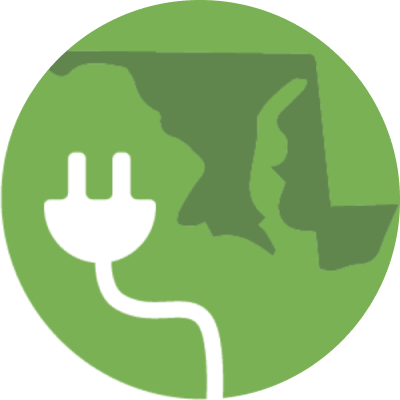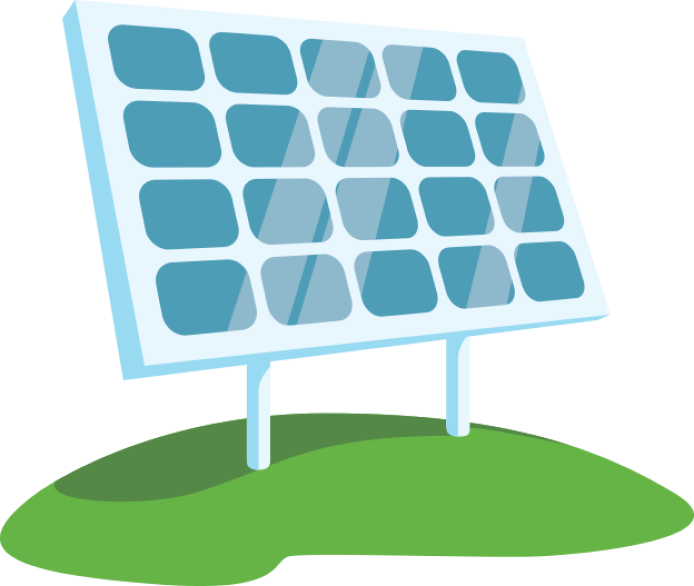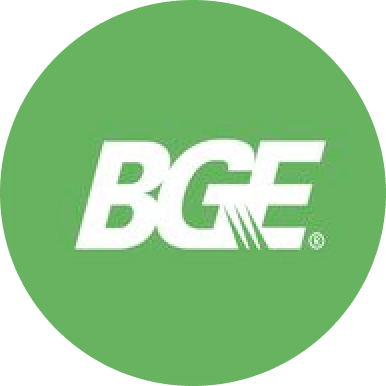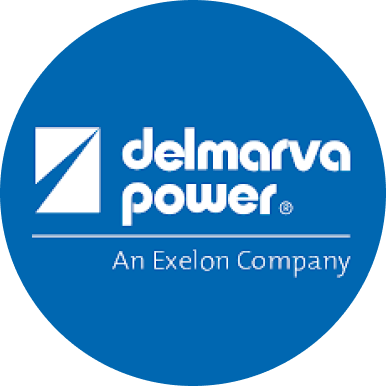See how much you can save by going electric!
There are many federal and state tax incentives, as well as state grants, vouchers and rebates, for the purchase of plug-in electric vehicles and electric vehicle supply equipment.
Federal Incentives

Alternative Fuel Infrastructure Tax Credit
For alternative fuel vehicle (AFV) infrastructure placed in service prior to January 1, 2023, see the Pre-2023 Alternative Fuel Infrastructure Tax Credit entry.
Installations Beginning January 1, 2023
The Alternative Fuel Vehicle Refueling Property Credit is available for qualified AFV fueling property installed in qualified locations on or after January 1, 2023, and through December 31, 2032. A single item of 30C property is each charging port or fuel dispenser, as well as each energy storage property for electricity, hydrogen, natural gas, propane, E85, or biodiesel blends of at least 20% (B20+). Components and parts that are essential to the operation of the charging port or fuel dispenser, including labor costs for constructing and installing the property, are also eligible for the 30C credit. Businesses are eligible for a tax credit of:
- 6% of the depreciable costs, up to $100,000 per item; or,
- 30% of the depreciable costs, up to $100,000 per item, if the installation meets U.S. Department of Labor prevailing wage and apprenticeship requirements.
For more information, see the Alternative Fuel Vehicle Refueling Property Credit proposed rule.
Tax exempt entities, including state and local governments, may be eligible to receive this credit in the same amount as businesses, via IRS elective pay provisions. For elective pay eligibility requirements, please see the IRS Elective Pay and Transferability website.
Consumers who purchase qualified alternative fueling equipment for installation at their principal residence in qualified locations on or after January 1, 2023, and through December 31, 2032, may receive a tax credit of up to 30% of the cost, up to $1,000.
To be eligible, all qualified fueling equipment also must be installed in a population census tract that is a low-income community or not an urban area. To help determine if an installation location is in a qualified census tract, see the IRS Guidance on the Qualified Alternative Fuel Vehicle Refueling Property Credit and Argonne National Laboratory’s 30C Tax Credit Eligibility Locator tool and list of frequently asked questions.
Additional requirements may apply. For further details, see the IRS Inflation Reduction Act of 2022 website and IRS Form 8911, which is available on the IRS Forms and Publications website. Additional location eligibility information is available in the IRS Guidance on Satisfying the Geographical Requirements of the Section 30C Alternative Fuel Vehicle Refueling Property Credit. For more information, including frequently asked questions and an eligibility locator map, see the Argonne National Laboratory Refueling Infrastructure Tax Credit website.
(Reference 26 U.S. Code 30C, 30D, 38, and 6417 and Public Law 117-169)

Commercial Electric Vehicle (EV) and Fuel Cell Electric Vehicle (FCEV) Tax Credit
Beginning January 1, 2023, a tax credit is available to businesses and tax-exempt organizations for the purchase of new EVs and FCEVs. Vehicles with a gross vehicle weight rating (GVWR) below 14,000 pounds (lbs.) must have a battery capacity of at least seven kilowatt-hours (kWh) and vehicles with a GVWR above 14,000 lbs. must have a battery capacity of at least 15 kWh. The tax credit amount is equal to the lesser of the following amounts:
- 15% of the vehicle purchase price for plug-in hybrid electric vehicles
- 30% of the vehicle purchase price for EVs and FCEVs
- The incremental cost of the vehicle compared to an equivalent internal combustion engine vehicle
Maximum tax credits may not exceed $7,500 for vehicles under 14,000 lbs. and $40,000 for vehicles above 14,000 lbs. Businesses may not combine this tax credit with the Clean Vehicle Tax Credit.
For more information, see the Internal Revenue Service (IRS) Commercial Clean Vehicle Credit website and the IRS Fact Sheet for New, Previously Owned, and Qualified Commercial Clean Vehicle Credits.
(Reference Public Law 117-169 and 26 U.S. Code 45W)
Electric Vehicle (EV) and Fuel Cell Electric Vehicle (FCEV) Tax Credit
The Inflation Reduction Act of 2022 (Public Law 117-169) amended the Qualified Plug-in Electric Drive Motor Vehicle Credit (IRC 30D), now known as the Clean Vehicle Credit, and added a new requirement for final assembly in North America that took effect on August 17, 2022. Additional requirements apply for vehicles placed in service (delivered) on or after January 1, 2023, and the amount of the credit will depend on whether the vehicle meets new critical minerals and battery components requirements for vehicles placed in service after April 17, 2023. See the IRS Clean Vehicle Credit and final guidance for more information. Taxpayers who purchase an eligible vehicle may qualify for a tax credit of up to $7,500. Additional details are provided below based on when the vehicle is purchased or placed-in-service.
In accordance with IRS regulations, beginning January 1, 2024, buyers can reduce the clean vehicle’s upfront purchase price by the amount of their Clean Vehicle Credit by choosing to transfer their credit to the dealer. Before 2024, eligible clean vehicle buyers could only receive the amount of their credit after filing their tax return. Starting January 1, 2024, dealers must submit information to the IRS through IRS Energy Credits Online to determine vehicle eligibility and amount of a Clean Vehicle Credit at the point of sale. Without this submission, buyers can’t claim a tax credit on their return, nor can they transfer it to a dealer. A dealer must provide the buyer a copy of the IRS’s approval of the dealer’s submission. For up-to-date information for dealers and consumers on the transfer of tax credits at the point-of-sale, refer to information on the IRS Clean Vehicle Tax Credit website.
Vehicles Placed in Service on or After April 18, 2023
For vehicles delivered on or after April 18, 2023, limitations apply that went into effect January 1, 2023, related to the vehicle’s manufacturer’s suggested retail price (MSRP), the buyer’s modified adjusted gross income, and the vehicle’s battery capacity. A North American final assembly requirement applies for vehicles purchased on or after August 17, 2022. Additional critical mineral and battery component requirements also apply as of April 18, 2023, which alter how the tax credit is calculated and may alter the amount of the tax credit available. These latter requirements came into effect upon the publication of the Treasury Department’s guidance document regarding the critical mineral and battery component requirements. Vehicles that meet the critical mineral requirements are eligible for a $3,750 tax credit, and vehicles that meet the battery component requirements are eligible for a $3,750 tax credit. Vehicles meeting both the critical mineral and the battery component requirements are eligible for a total tax credit of $7,500.
Vans, sport utility vehicles, and pickup trucks must not have an MSRP above $80,000, and all other vehicles may not have an MSRP above $55,000. The MSRP can be found on the vehicle’s window sticker, which is also known as the “Monroney label”; the MSRP for this purpose includes any trim, options, or accessories for the particular vehicle and excludes the destination fee and dealer-provided options and accessories.
Additionally, a taxpayer’s eligibility for the tax credit may be limited by thresholds for modified adjusted gross income (modified AGI); only individuals having a modified AGI below the following thresholds for the current tax year or the prior tax year are eligible for the tax credit:
- $300,000 for joint filers
- $225,000 for head-of-household filers
- $150,000 for all other filers
To be eligible for the Clean Vehicle Credit, the battery powering the vehicle must have a capacity of at least seven kilowatt-hours (kWh). The amount of the credit depends on whether the vehicle meets certain critical minerals and battery component requirements.
Critical Minerals: To be eligible for the $3,750 critical minerals portion of the tax credit, the percentage of the value of the battery’s critical minerals that are extracted or processed in the United States or a U.S. free-trade agreement partner or recycled in North America, must meet or exceed the following thresholds:
| Year | Critical minerals minimum percent value requirement |
|---|---|
| 2023 | 40% |
| 2024 | 50% |
| 2025 | 60% |
| 2026 | 70% |
| 2027 and later | 80% |
Battery Components: To be eligible for the $3,750 battery components portion of the tax credit, the percentage of the value of the battery’s components that are manufactured or assembled in North America must meet or exceed the following thresholds:
| Year | Battery components minimum percent value requirement |
|---|---|
| 2023 | 50% |
| 2024 and 2025 | 60% |
| 2026 | 70% |
| 2027 | 80% |
| 2028 | 90% |
| 2029 and later | 100% |
Further guidance on additional 30D requirements is forthcoming. For more information, including additional eligibility requirements, see the IRS Clean Vehicle Credit website.
Vehicles Sold on or After January 1 and Placed-in-Service Before April 18, 2023
Beginning January 1, 2023, the Clean Vehicle Credit (CVC) provisions removed the manufacturer sales caps for vehicles sold after January 1, 2023, expanded the scope of eligible vehicles to include both EVs and FCEVs, and required that the battery powering the vehicle has a capacity of at least seven kilowatt-hours (kWh). An available tax credit under the CVC may be limited by the vehicle’s manufacturer suggested retail price (MSRP) and the buyer’s modified adjusted gross income (as addressed above). The North American final assembly requirement continues to apply.
For vehicles placed in service before April 18, 2023, the available CVC tax credit is a base amount of $2,500 plus, for a vehicle that draws propulsion energy from a battery with at least 7 kWh of capacity, $417, plus an additional $417 for each kilowatt hour of battery capacity beyond 5 kWh. The total tax credit available for a vehicle may not exceed $7,500.
Vehicles Purchased Between August 17 and December 31, 2022
Qualifying EVs purchased and delivered between August 17, 2022, and December 31, 2022, are eligible for the tax incentive as described below for vehicles purchased before August 17, 2022, but are limited to vehicles with final assembly in North America. Manufacturer sales caps on vehicles apply. Note that for some manufacturers, the assembly location may vary because some models are produced in multiple locations. The assembly location of a particular vehicle should be confirmed by referring to its Vehicle Identification Number (VIN) using the U.S. Department of Transportation’s VIN decoder or an information label affixed to the vehicle.
Vehicles Purchased Before August 17, 2022
Qualifying EVs purchased before August 17, 2022, are eligible for a tax credit that is available for the purchase of a new qualified EV that draws propulsion from a battery that has at least five kilowatt-hours (kWh) of capacity, uses an external source of energy to charge the battery, has a gross vehicle weight rating of up to 14,000 pounds, and meets specified emission standards. The minimum credit amount is $2,500, and the credit may be up to $7,500 based on each vehicle’s traction battery capacity. The credit will begin to be phased out for each manufacturer in the second quarter following the calendar quarter in which a minimum of 200,000 qualified PEVs have been sold by that manufacturer for use in the United States. This tax credit is also available for future EV owners with a written binding contract to purchase a new qualifying electric vehicle before August 16, 2022, but do not take possession of the vehicle until on or after August 16, 2022. For more information, including qualifying vehicles and sales by manufacturer, see the IRS Clean Vehicle Credit website.
(Reference Public Law 117-169 and 26 U.S. Code 30D)
Natural Gas Vehicle (NGV) and Electric Vehicle (EV) Weight Exemption
NGVs and EVs may exceed the federal maximum gross vehicle weight limit for comparable conventional fuel vehicles by up to 2,000 pounds (lbs.). The NGV or EV must not exceed a maximum gross vehicle weight of 82,000 lbs.
(Reference 23 U.S. Code 127(s) and Public Law 116-6)
Pre-Owned Electric Vehicle (EV) and Fuel Cell Electric Vehicle (FCEV) Tax Credit
Beginning January 1, 2023, the Clean Vehicle Credit (IRC 25E) provides a tax credit of up to $4,000 for the purchase of a pre-owned EV or FCEV. Eligible vehicles must be of a model year at least two years prior to the year of purchase and may not have a purchase price above $25,000. Individuals with a modified adjusted gross income below the following thresholds are eligible for the tax credit:
- $150,000 for joint filers
- $112,500 for head-of-household filers
- $75,000 for single filers
Only one tax credit may be claimed per vehicle. Individuals may not claim more than one pre-owned vehicle tax credit in a three-year period. For more information about claiming the credit, see Internal Revenue Service (IRS) Used Vehicle Credit website and Form 8936, which is available on the IRS Forms and Publications website, and the final rule.
(Reference Public Law 117-169 and 26 U.S. Code 25E)
Learn more about: Electric Vehicle Supply Equipment | Electric Vehicles | Fuel Cell Electric Vehicles
Maryland State Incentives

Electric Vehicle (EV) and Fuel Cell Electric Vehicle (FCEV) Tax Credit
Beginning July 1, 2023, qualified EV and FCEV purchasers may apply for an excise tax credit of up to $3,000. The tax credit is first-come, first-served, and is limited to one vehicle per individual and 10 vehicles per business entity. Qualified vehicles must meet the following criteria:
- Have a base purchase price not exceeding $50,000;
- Be propelled to a significant extent by an electric motor that draws electricity from a battery with a capacity of at least 4 kilowatt-hours;
- Have not been modified from original manufacturer specifications; and
- Be purchased and titled for the first time between July 1, 2023, and June 30, 2027.
Additional restrictions apply. Learn more at the Motor Vehicle Administration’s website!
(Reference Maryland Statutes, Transportation Code 13-815 and House Bill 1391, 2022)
Electric Vehicle (EV) Charging Station Rebate Program
The Maryland Energy Administration (MEA) offers a rebate to individuals, businesses, or state or local government entities for the costs of acquiring and installing qualified EV charging stations. The rebate may cover 50% of the costs of acquiring and installing qualified EVSE, or up to the following amounts:
| Qualified Entity | Amount per EV Charging Station |
|---|---|
| Residential | $700 |
| Businesses, Nonprofits, Workplaces, Multi-Unit Dwellings, and State or Local Government Entities | $5,000 |
Applicants must demonstrate compliance with state, local, and/or federal law that applies to the installation or operation of qualified EV charging station. Other requirements may apply. MEA may award up to $2,500,000 total. Each entity that applies for a commercial rebate may receive up to $125,000 per fiscal year. Rebates will be awarded on a first-come, first-served basis.
For more information, see the MEA EVSE Rebate Program website.
(Reference Maryland Statutes, State Government Code 9-2009, Maryland Statutes, Business Regulation Code 10-101, and House Bill 550,2023)
Electric Vehicle (EV) High Occupancy Vehicle (HOV) Lane Permit
EV Owners may obtain a permit from the Maryland Department of Transportation Motor Vehicle Administration (MDOT MVA) to use HOV lanes, regardless of the number of passengers in the vehicle. Customers can order a sticker for a fee of $5 through their myMVA account here. Permits also will be issued at all MVA branch offices, licensed dealerships and Tag & Title agencies. Each year the MDOT MVA and the State Highway Administration must report EV HOV lane use to the governor. This act shall remain effective through September 30, 2025. For more information, see the HOV Permit Issuance for EVs website.
Electric Vehicle Emissions Inspection Exemption
Vehicles powered exclusively by electricity are exempt from state emissions inspections. For more information, see the Maryland Vehicle Emissions Inspection Program website.
(Reference Maryland Statutes, Transportation Code 23-206 and 23-206.4)

Electric Vehicle (EV) Workplace Charging Grant
The Maryland Department of Environment (MDE) offers grants of up to 60% of the cost for the installation of EV charging stations at workplaces through the Charge Ahead Grant Program (CAGP). Grants are available for up to $4,500 per Level 2 EV charger and $600,000 per applicant. CAGP funding is available for costs directly attributable to the design, installation, and operation of eligible workplace EV charging stations. Eligible entities include non-profits, private companies, and government agencies. The program is funded by Maryland’s portion of the Volkswagen Environmental Mitigation Trust. For more information, including program guidance and application, see the MDE Volkswagen Settlement website.
Electric Vehicle (EV) Corridor Charging Grant
The Maryland Department of Environment (MDE) offers grants of up to 80% of the cost for the installation of direct current fast charging (DCFC) stations along Federal Highway Administration designated alternative fuel corridors through the Electric Corridors Grant Program (ECGP). ECPG funding is available for up to $150,000 per DCFC station and $600,000 per applicant. Eligible entities include non-profits and private businesses. Grant awards vary based on total kilowatts per charging port. The program is funded by Maryland’s portion of the Volkswagen Environmental Mitigation Trust. For more information, including program guidance and application, see the MDE’s Volkswagen Settlement website.
Solar Canopy Electric Vehicle (EV) Infrastructure Grant
The Maryland Energy Administration (MEA) offers grants of up to $125,000 for the planning and installation of solar arrays on existing public facilities and infrastructure. Eligible projects include solar canopies that support EV chargers. For more information, see the MEA Public Facility Solar Grant Program website.

Clean Energy Grants
The Maryland Smart Energy Communities (MSEC) program, administered by the Maryland Energy Administration (MEA), offers local governments grants for transportation-related projects, including the purchase of new electric vehicles (EVs) or alternative fuel vehicles and the installation of EV chargers. Grants are available in the following amounts:
| Project Type | Maximum Grant Award |
|---|---|
| Purchase of a New EV with an All-Electric Range of up to 199 Miles | $3,750 per vehicle |
| Purchase of a New EV with an All-Electric Range of Over 200 Miles | $7,500 per vehicle |
| EV Charging Equipment and Installation | $6,000 per EV charger |
Communities may apply for funding for multiple projects for a maximum grant award of $55,000 per project, or communities may apply for up to $150,000 for a single project. Additional requirements may apply. For more information, including requirements and application deadline, see the MEA MSEC website.
Hear an interview about how a Maryland business took advantage of incentives to install electric vehicle charging stations:
Learn more about: Electric Vehicle Supply Equipment | Electric Vehicles | Fuel Cell Electric Vehicles
Maryland Utility Incentives

BGE
For information on incentives available to BGE customers, visit BGE’s EVsmart web page.

Pepco
For information on incentives available to Pepco customers, visit Pepco’s EVsmart web page.

Delmarva
For information on incentives available to Delmarva customers, visit Delmarva’s EVsmart web page.

Potomac Edison
For information on incentives available to Potomac Edison customers, visit Potomac Edison’s EV Driven web page.

SMECO EV Recharge – SMECO
Members of Southern Maryland Electric Cooperative’s SMECO EV Recharge program can optimize home charging and earn up to $120 by choosing one of several tailored solutions that align with individual needs. Programs include Managed Charging, which offers EV drivers control of their charging and an automatic annual incentive paid as a $10 credit each month; Charging Data Access, which offers an annual $50 credit to EV drivers willing to share their charging data to help enhance SMECO’s understanding of EV charging patterns; and Off-peak Savings, designed for EV drivers who want more control over their own charging schedules and are open to charging within specific time frames. For detailed SMECO EV Recharge information and enrollment, visit the SMECO website.
Learn more about: Electric Vehicle Supply Equipment | Electric Vehicles | Fuel Cell Electric Vehicles



